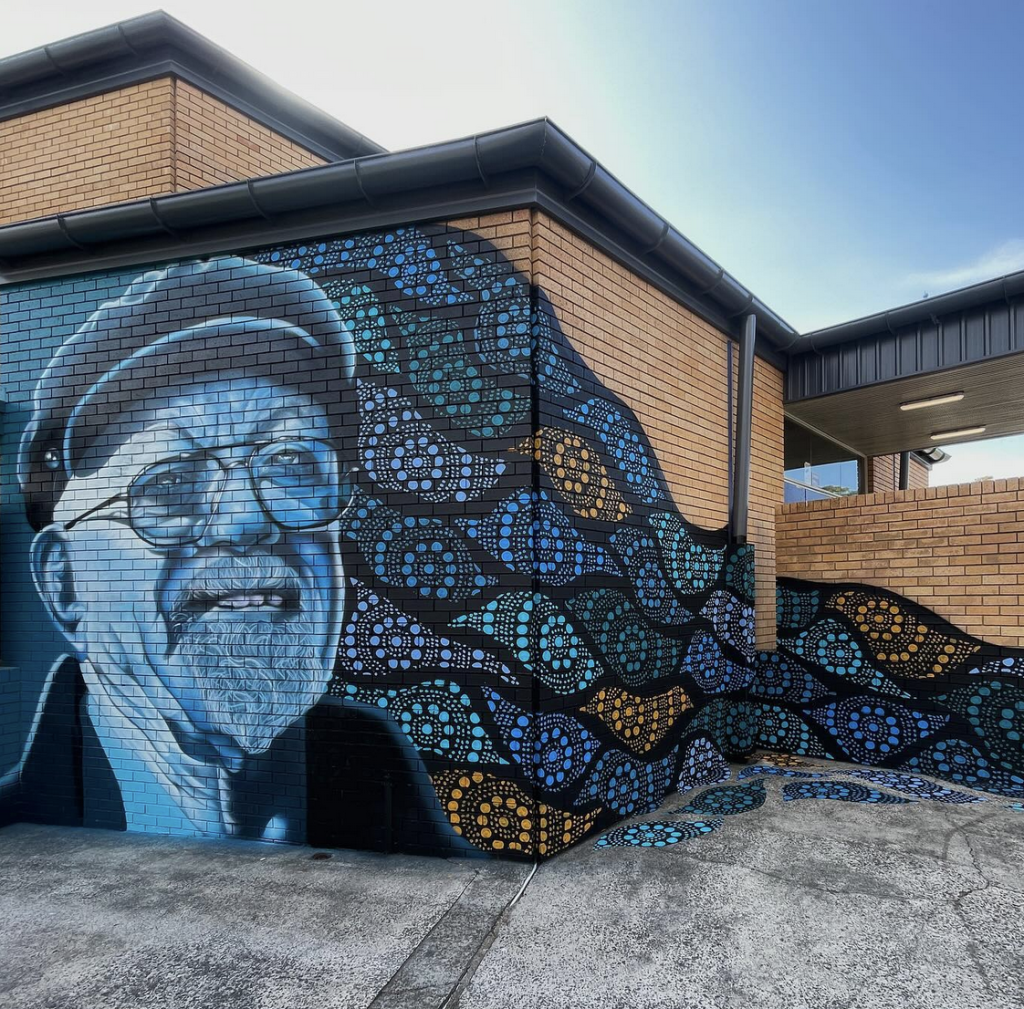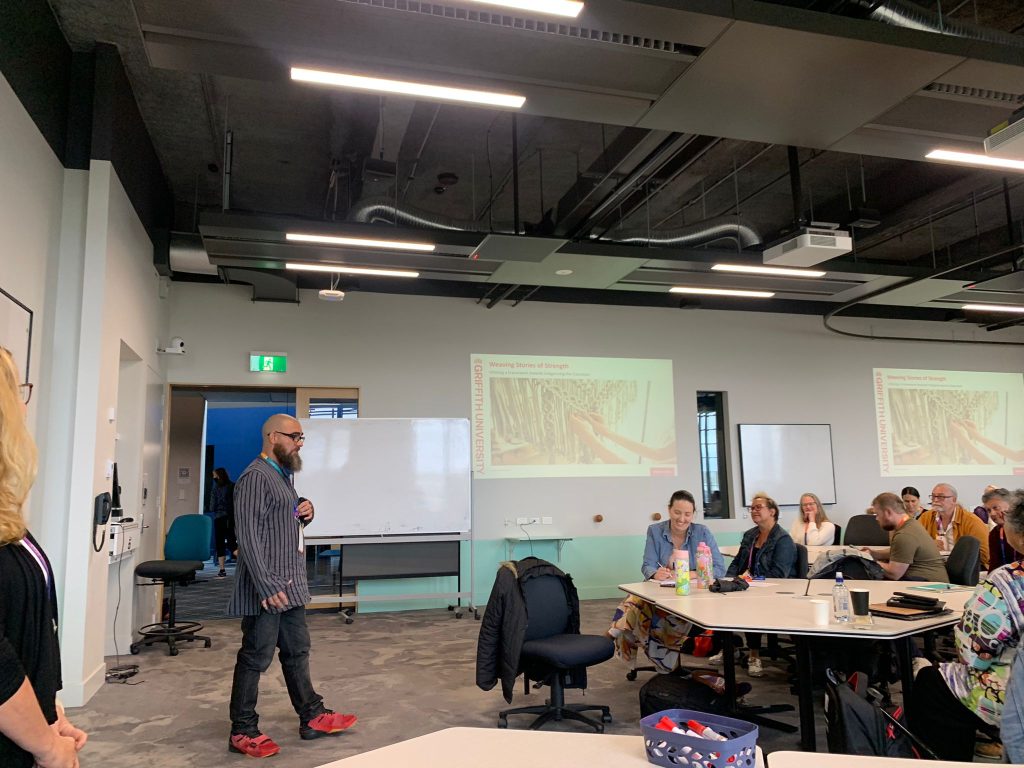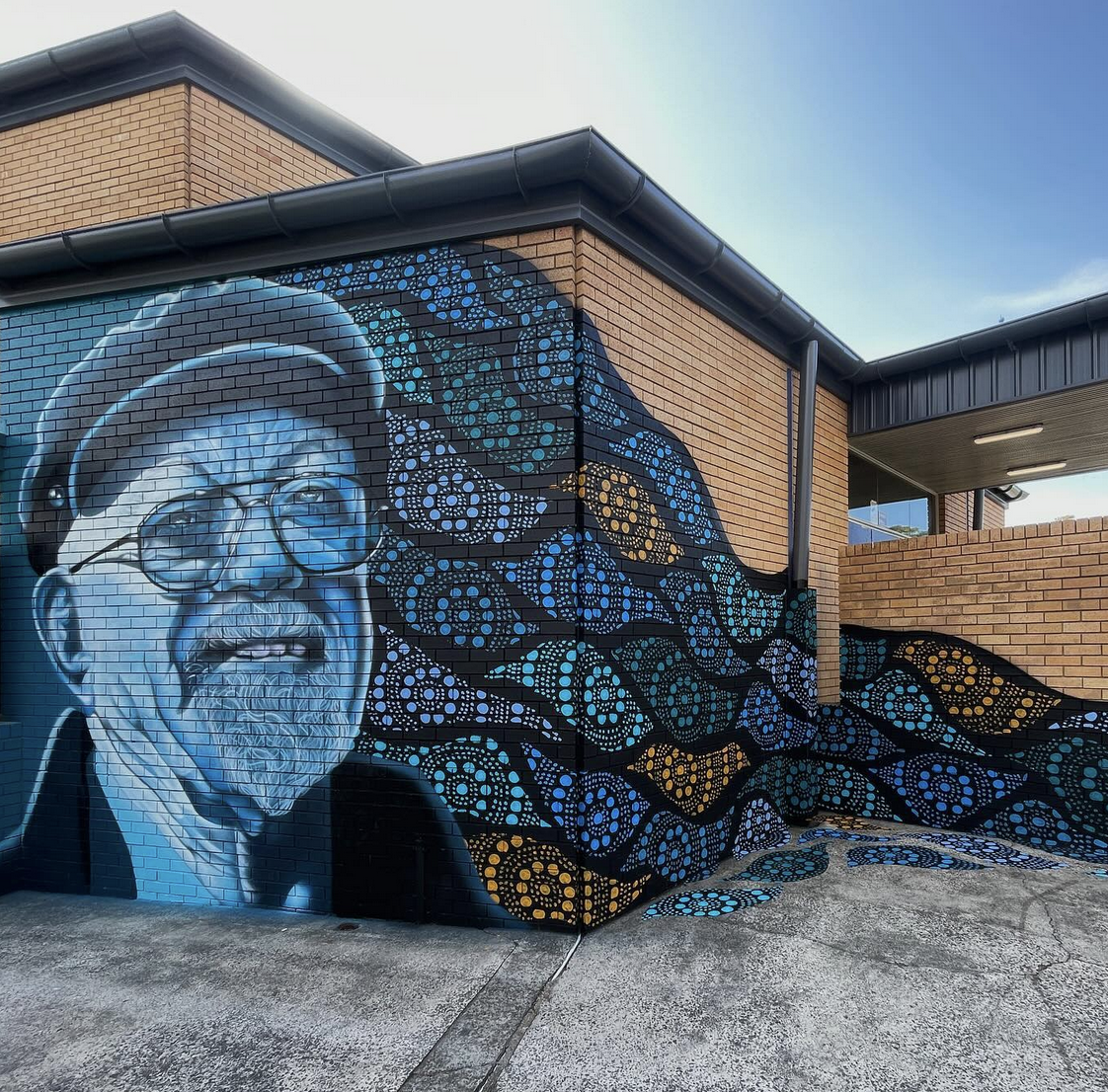Meet our new First Nations Research Lead
news
Published 16 Sep 2024
Bringing the wisdom of the ages to the battle for a healthier river basin
Professor Troy Meston is a Yuwaalaraay-Gamilaroi man who comes from a long line of fighters. His uncle was the legendary Tommy Chapman, twice Australia’s national featherweight boxing champion. Another uncle is the celebrated educator Vic Chapman, who became the first Aboriginal school principal in New South Wales, leaving a legacy that’s inspired thousands of Indigenous teachers and students.
Troy too is already inspiring a new generation of leaders. Since 2012, he’s been based at Griffith University in Brisbane, where he has lectured in Indigenous histories, knowledge and communication, and led the Indigenous Studies program for preservice teachers – coordinating 16 tutors and 600 student-teachers across five campuses.
Over the past 20 years, Troy has advised governments and national agencies on issues of Indigenous health and education, adapted materials for Australia’s primary and secondary curricula, and published research on everything from Indigenous pedagogies and digital learning, to climate justice, community media, and the educational benefits of cognitive neuroscience (a ‘real eye-opener’ that led to his PhD, ‘and still frames many of the ways I approach learning’).

Vital new research
In mid-2024, after 12 years at Griffith, Troy headed south to join Charles Sturt University and the One Basin CRC as our inaugural First Nations Research Lead. It’s a new avenue of research, but change is not unfamiliar to him, and he’s taking the work extremely seriously.
‘I think it’s absolutely critical to include First Nations people in One Basin’s research, which will be vital to the long-term health of some of our most precious ecosystems,’ says Troy. ‘This job is a big responsibility, helping to identify innovative research opportunities and put together teams that will include Aboriginal researchers and prioritise how water impacts First Nations communities.
‘Communities across the basin are deeply invested in fighting for clean water, which will become increasingly challenging in the face of climate change. But with 10 years of government funding, there’s a unique opportunity to do some real good, and secure clean water for all of the basin’s communities.’
A singular passion
While the recent referendum and rising rates of deprivation in many Indigenous communities fill Troy with deep sorrow, they drive a singular passion to identify and develop opportunities that could meaningfully benefit communities. Like most First Nations people, he’s encountered socio-economic deprivations and deep resistance on his research journeys. But his early experiences at One Basin fill him with optimism that unity can be found in the urgency of the centre’s mission.
‘Despite continuing colonisation, Aboriginal people are deeply invested in fighting for clean air, clean water, and healthy river ecosystems,’ says Troy. ‘With this major federal investment, I believe we can find important common ground between our politicians, farmers, ecologists, and communities in restoring our river habitats and waterflows.
‘Water is the lifeblood of civilisation and humanity, after all. There’s unifying power in that!’

A definitive journey
Troy is renowned for the meticulous depth of his research, which has provided several definitive – and nationally unifying – texts. Early in his career, he accompanied academic Dr Ken Edwards on a countrywide journey to record all the traditional games and sports played by Australia’s Aboriginal communities.
Today, Yulunga: Traditional Indigenous Games is recognised as the definitive guide on the subject, its detailed descriptions of 140 games helping to find a place for Indigenous sports in the national PE curriculum. Troy also adapted a series of Indigenous games for the Australian Sports Commission’s Sports Ability program, working with several para-Olympians to increase physical inclusion for children of all abilities.
Soon after the Yulunga project, Troy worked with the Australian Institute of Sport to roll out a culturally-inclusive identification and management program for Indigenous athletes leading into the 2008 and 2012 Olympic Games. Over the following years, he contributed to research on Aboriginal school attendance for the Prime Minister and Cabinet, developed a financial literacy program for the Australian Securities and Investments Commission, and reviewed neuroscience and First Nations trauma at the Australian Research Council’s Science of Learning Research Centre.
More recently, Troy has contributed to evaluating national Indigenous broadcasting services for Minister Linda Burney across 25 urban, regional, remote, and very remote communities, and reviewed global Indigenous media methodologies for UNESCO – the findings of which were presented to the United Nations Indigenous Special Rapporteur in June.
Bridging the basin
The inclusive nature of much of Troy’s research will stand him in good stead as he treads the delicate lines between the priorities of the Basin’s community aspirations, First Nations peoples, farmers, irrigators, ecologists, and environmental groups. But he remains confident that his unique background in nurturing common ground can help to bridge some of these gaps.
‘I believe the CRC will help to develop systems and structures of best practice that will inform inclusive policies, leaving a legacy that will change hearts and minds,’ says Troy.
‘Much of this work involves ‘making the road by walking’. We need to make sure Basin projects are thinking about what water means for everyone, the long-term impacts of projects for all communities – which includes involving First Nations people in meaningful research.
‘For Aboriginal people, fresh water is key to everything we hold dear. We feel that water is like our family.’
Latest news & events
All news & eventsWebinar recording: Working With Country To Heal
Read MoreBuilding capacity for Basin communities to respond to variable water futures
Read MoreDelivering the Commonwealth Environmental Water Holder’s (CEWH) Flow-MER 2025 Annual Forum
Read MoreMurray Darling Association 2025 National Conference: Griffith drives Basin-wide water collaboration
Read More